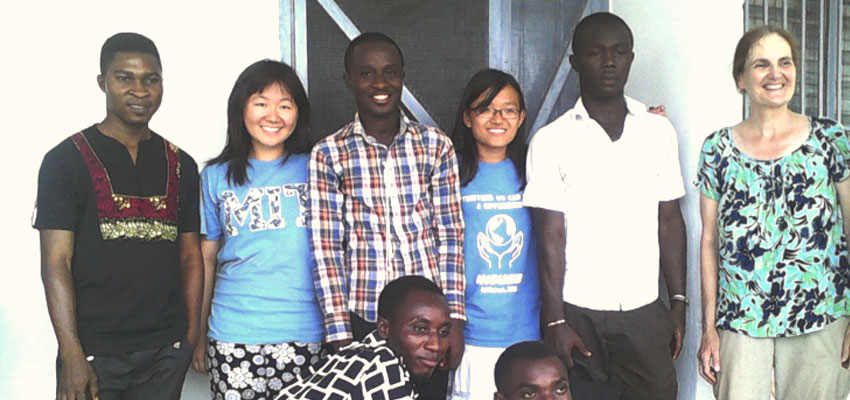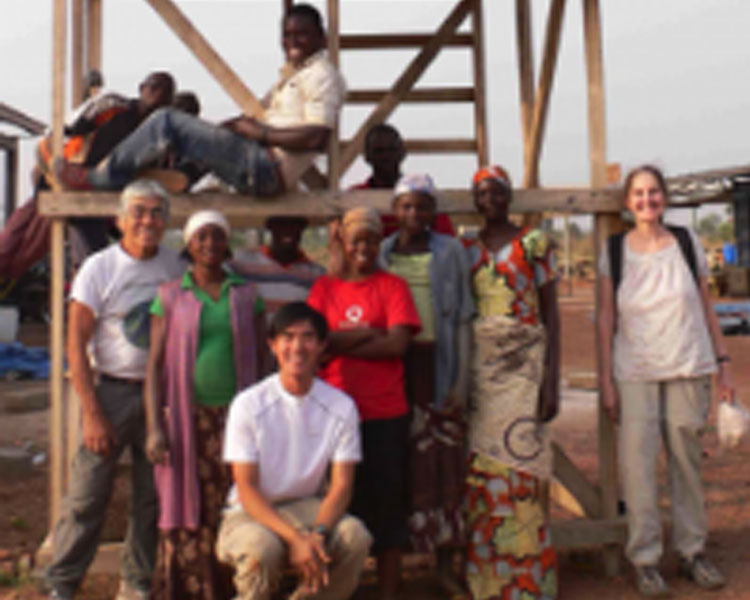
Lecturer Susan Murcott recently published (Springer, World Sustainability Series) an article, D-Lab and MIT IDEAS Global Challenge: Lessons in Mentoring, Transdisciplinarity and Real World Engineering for Sustainable Development, which is a reflection on her teaching at D-Lab and the engagement of her students in the MIT IDEAS Global Challenge over the past 14 years (2002–2015). Read on for the abstract and click through to the full article!
ABSTRACT
This paper reflects on the Massachusetts Institute of Technology’s D-Lab and IDEAS Global Challenge pedagogy over the past 14 years (2002–2015). The MIT IDEAS Global Challenge, a program of the MIT Public Service Center, is an annual invention and entrepreneurship competition that awards up to $10,000 per MIT team for innovations and service projects that positively impact underserved communities. IDEAS student teams work with a community partner on projects that are designed to improve the quality of life globally. Since its founding in 2002, IDEAS has awarded more than $600,000 to 132 teams. D-Lab Water, Sanitation, Hygiene and Environmental Innovations for the Common Good (D-Lab WASH + ENV) is a MIT course offered for the past 10 years within a curriculum of over 20 D-Lab classes in international development. This author has mentored several hundred student teams that have entered the IDEAS Global Challenge, mostly through this course D-Lab WASH + ENV, including 26 winning teams. Eighty-one percent of these IDEAS winning teams have been led by women students. This is a model of the kind of program that can bring gender parity to science, technology, engineering and math (STEM) disciplines while nurturing the “whole student.” In common with the wider family of D-Lab courses, the D-Lab-WASH + ENV course is structured around experiential learning and real-world engineering. This paper links the Engineering Education for Sustainable Development (EESD) conference themes with the D-Lab/IDEAS pedagogy in terms of key concepts: mentoring, transdisciplinarity and real world engineering. It ends with challenges and recommendations.
About Susan Murcott
Susan Murcott is a Lecturer in D-Lab where, for the past 12 years, she has been teaching “D-Lab-Water, Sanitation, Hygiene and Environmental Innovations for the Common Good” (EC.715/11.474J) and in 2016, is newly teaching D-Lab: Water and Climate Change (EC.S08/EC.S12). She is an environmental engineer with a focus on water. She has led MIT student teams in over 25 countries spanning five continents. In 2014-2015, she led the water filter evaluation of the Comprehensive Initiative on Technology Evaluation (CITE), a five-year USAID-funded project, to evaluate technologies for the poor. From 2005 to the present, she founded and helped establish the non-profit organization, Pure Home Water, with Ghanaian partners, which has built a ceramic pot filter factory to provide safe drinking water in northern Ghana. From 2002 to the present, she has been the principal investigator of a team, in partnership with the Environment and Public Health Organization in Kathmandu, Nepal, that invented and has widely disseminated the KanchanTM Arsenic Filter, as well as being involved in MIT-funded emergency relief following the 2015 Nepal earthquake. Murcott is the author of over 50 professional papers as well as the book Arsenic in the World: an International Sourcebook (IWA, 2012-Link).


